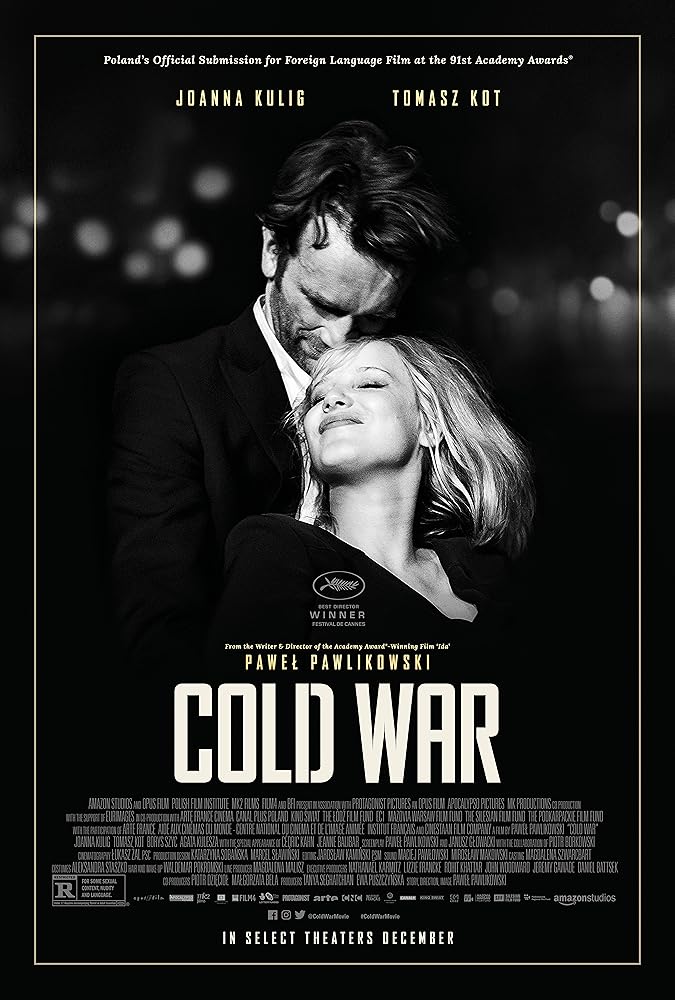
Cold War | Pawel Pawlikowski | NYFF 2018
Polish filmmaker Pawel Pawlikowski follows up his acclaimed 2014 film Ida with Cold War, another period-piece filmed in black and white in a 1.37: 1 aspect ratio.
Set in post-World War II Poland and focused on two lovers find love and struggle to maintain it in a steady back and forth that maintains through two decades that wear them thin.
The story is a personal one for Pawlikowski, who based on his own parent’s meeting and the relationship that unfolded. Wiktor (Tomasz Kot) is traveling through Poland trying to record classic folk tunes and is tasked with finding local singing talent to help fill out a chorus. This is where he is immediately struck by the spirit and energy that is Zula (Joanna Kulig), a force-to-be-reckoned is that completely captures Wiktor.

You know what unfolds next with their relationship, one that shouldn’t have begun in the first place. But it does, and the two lovers are forced to find a way to make their relationship work in a testy time period that does anything but help their chances for making it out together.
There’s no doubt a glaring intoxicating energy between them, led by the charismatic screen presence of the absolutely magnetic Joanna Kulig, the sort of find that feels like a Jennifer Lawrence in Winter’s Bone type of discovery.
Their relationship is the heart and soul of the film of course and as we see them weathered and beat down by the construct of time, it’s hard not to feel for them. Pawlikowski, who co-wrote the screenplay with Janusz Glowacki, puts their passion and self-destructive nature to the screen and frame it to perfection with cinematographer Lukasz Zal, captured in a gorgeous and timeless black and white that comes to life in an astonishing fashion in its desired framing.
As with any decade-spanning long cinematic journey, some acts are stronger than others, but the heart and soul of the film are felt throughout, despite the films beginning and ending ultimately edging out what comes in-between.
But there’s a timelessness that radiates and feels absolute and true here, the sort of thing that truly great cinema can capture and feel so essential and natural, and with that, Pawlikowski has ultimately found a sweet, sweet, success.
Join the conversation